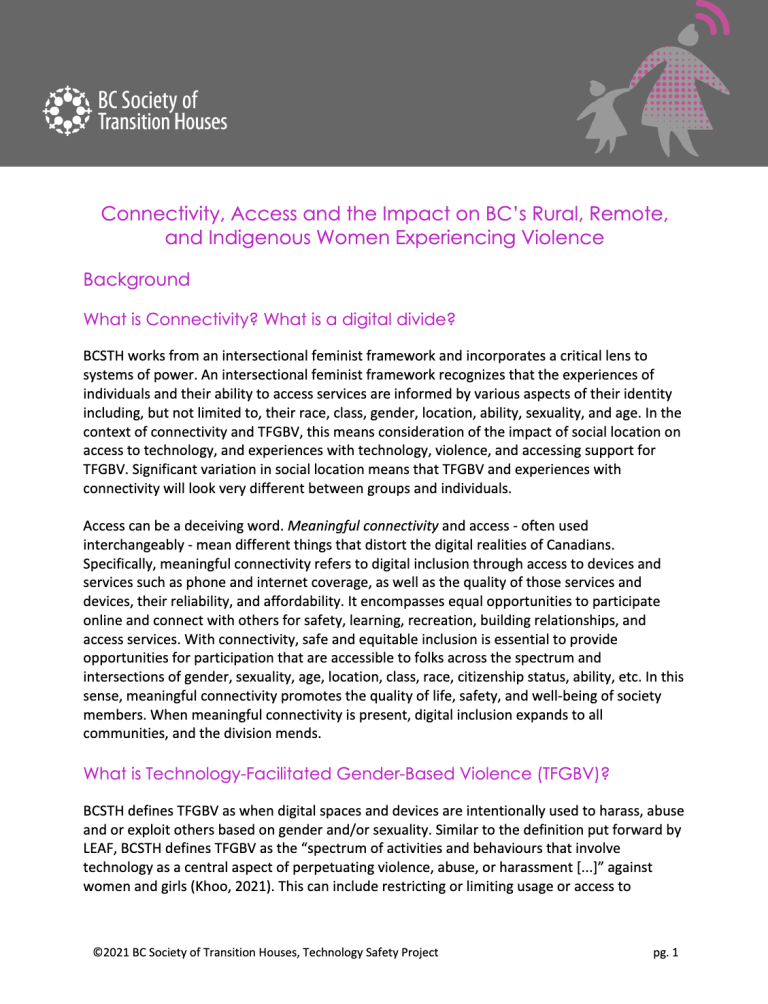Search the Baseline Project
To search the recommendations database, please visit the database main page.
To search the recommendations database, please visit the database main page.

In 2021, the BC Society of Transition Houses, Technology Safety Project published “Connectivity, Access and the Impact on BC’s Rural, Remote, and Indigenous Women Experiencing Violence.” The paper recommends policy work that prioritizes connectivity as a safety necessity for anti-violence and emergency preparedness.